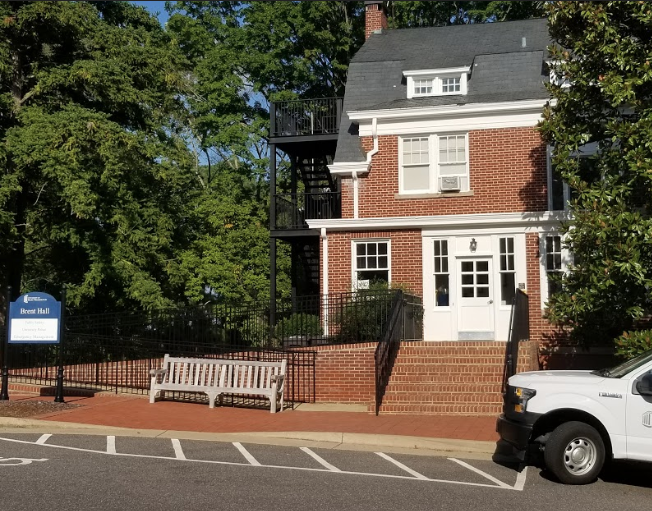Sexual battery incident near campus causes alarm
3 min read
Kelly Barron
By HANNAH GALEONE
Senior Writer
On Friday, Sept. 28, an email was sent out to the University of Mary Washington community. The subject line of the email read “Campus Crime Alert.”
This email was sent out to alert students, faculty and staff about a sexual battery that occurred on Sept. 22, in the 1700 block of Sunken Road. The sexual battery happened between midnight and 3 a.m.
The student who was sexually battered made a report to a Residence Assistant. The Residence Assistant then contacted the University Police so a formal investigation could begin.
“The safety and well being of the victim [are most important to the UMW Police Department],” said UMW Police Chief Michael Hall. “We can contact any agency if we need to [and] there are a host of resources that we can go through.”
In the event of a sexual assault or battery on campus, the UMW PD prioritizes the medical needs, support mechanisms, and on and off-campus resources provided to the survivor.
“Within 72 hours of a reported sexual assault, the Sexual Assault Response Team, which is mandated by state law, has to comes together to review the circumstances. Shortly thereafter, contact with the Commonwealth Attorney is made,” said Chief Hall.
The Office of the Commonwealth Attorney is the office that decides whether or not a charge is to be filed.

Since the campus crime alert was sent out to the community, students and others have expressed their concern with the release date of the alert, as it was sent out four days after the offense.
“Normally, depending on the circumstances, institutions [will] send out a timely warning for sexual assault,” said Chief Hall. “We use the policy that we have in place. If the accused is not known, or not readily available, we immediately send out the timely warning.”
If there are extenuating circumstances, the UMW PD will evaluate them and then make a decision on how and when to alert the community. If there is no imminent danger to the community, the UMW PD will revert back to a campus alert.
“By the Clery Act, we are required to notify the community and we use the timely warning if there is imminent danger to the community,” said Chief Hall.
In this case, the suspect has been identified by the UMW PD and they are not affiliated with the University.
Another concern of many UMW community members are the final two sentences of the campus crime alert. These two sentences read: “It is believed that the sharing of narcotics is a tactic used by this subject. Alcohol and drugs may impair judgment, making it difficult to notice unsafe situations and intervene to help others.”
“I’ve had some calls about whether we’re accusing or victim blaming [by making that statement]. That’s the furthest thing from the truth that the University Police Department wants any victim or survivor to think,” said Chief Hall.
Students and community members expressed their discomfort with the wording of the email, stating that the wording suggested victim blaming or shaming.
“Victim blaming is the last thing we want to do,” said Chief Hall. “I feel a moral, ethical, and professional obligation to tell students in the community: be careful.”
In this scenario, the individual tried to use narcotics on the survivor, giving the UMW PD grounds to mention it in their campus-wide alert.
“We put safety tips in every email. We’re mandated, whether it’s a timely warning or an alert, to put safety tips in every email that goes out,” said Chief Hall.
At this time, the student does not wish to press charges. But, if they choose to, they will still have the option to move forward.
“The UMW PD and the Commonwealth Attorney do everything they can to honor the wishes of the survivor,” said Chief Hall.


